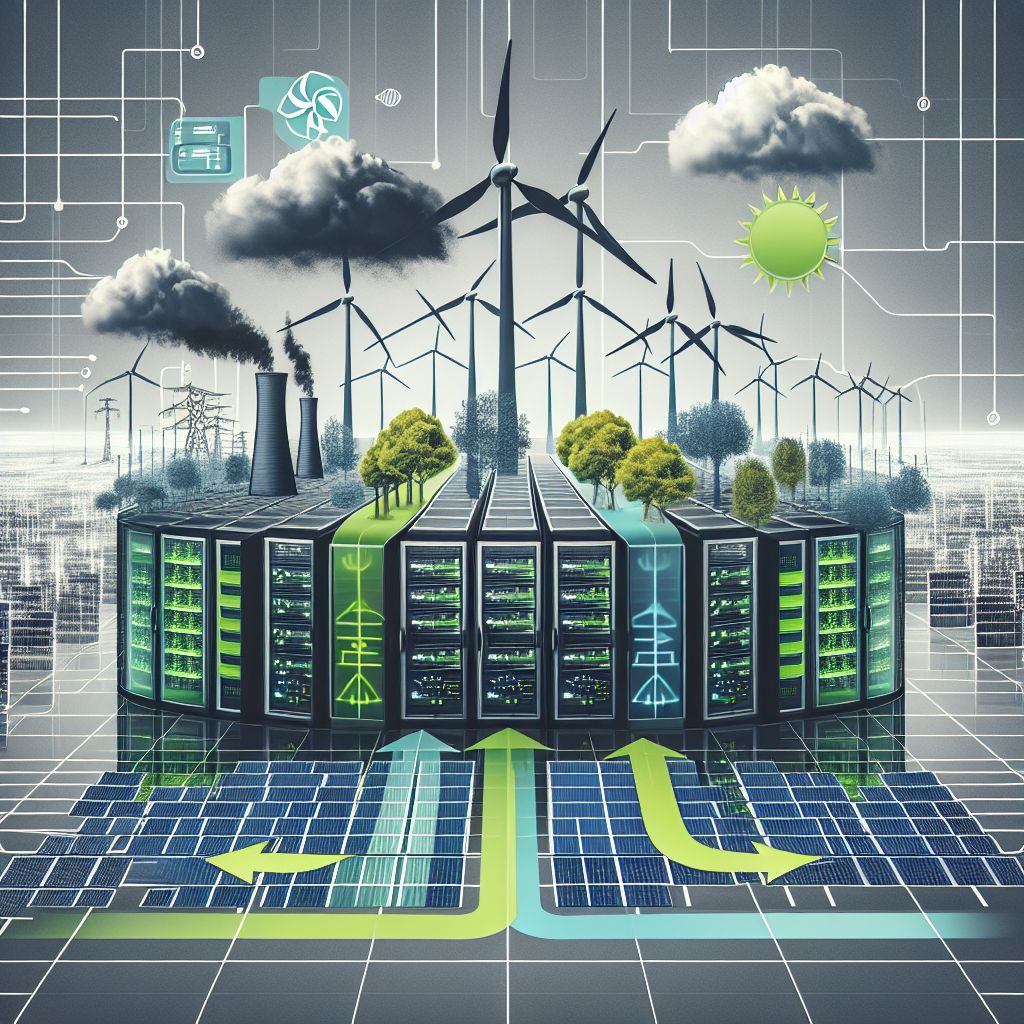Your cart is currently empty!
From Energy Efficiency to Renewable Power: Achieving Sustainability in Data Centers

Data centers are essential for storing, processing, and distributing vast amounts of information in our digital world. However, the energy consumption of these facilities is a major concern for sustainability. As data centers continue to grow in size and complexity, the need to improve energy efficiency and transition to renewable power sources becomes increasingly urgent.
One of the key challenges in making data centers more sustainable is their high energy consumption. According to the Environmental Protection Agency (EPA), data centers in the United States alone consume about 2% of the country’s total electricity. This energy consumption not only contributes to greenhouse gas emissions but also adds significantly to operating costs for data center operators.
To address these challenges, data center operators are implementing a variety of strategies to improve energy efficiency. These include using energy-efficient IT equipment, optimizing cooling systems, and implementing virtualization and consolidation techniques to reduce the number of physical servers required. By improving energy efficiency, data center operators can reduce their overall energy consumption and operating costs, while also minimizing their environmental impact.
In addition to improving energy efficiency, data centers are also transitioning to renewable power sources to achieve sustainability. Renewable energy sources such as solar, wind, and hydroelectric power are becoming increasingly cost-effective and reliable options for powering data centers. By harnessing renewable energy, data center operators can reduce their reliance on fossil fuels and lower their carbon footprint.
Several major technology companies have already made significant commitments to using renewable energy to power their data centers. For example, Google has announced its goal to power all of its data centers and offices with 100% renewable energy by 2030. Similarly, Microsoft has committed to becoming carbon negative by 2030, meaning it will remove more carbon from the atmosphere than it emits.
In addition to improving energy efficiency and transitioning to renewable power sources, data center operators are also exploring innovative technologies and practices to further enhance sustainability. This includes utilizing advanced cooling technologies, implementing energy storage solutions, and exploring new ways to reuse waste heat generated by data centers.
Overall, achieving sustainability in data centers requires a holistic approach that combines energy efficiency improvements, renewable power sources, and innovative technologies. By adopting these strategies, data center operators can reduce their environmental impact, lower operating costs, and contribute to a more sustainable future. As the demand for data continues to grow, it is crucial that data centers lead the way in implementing sustainable practices to protect the planet for future generations.

Leave a Reply